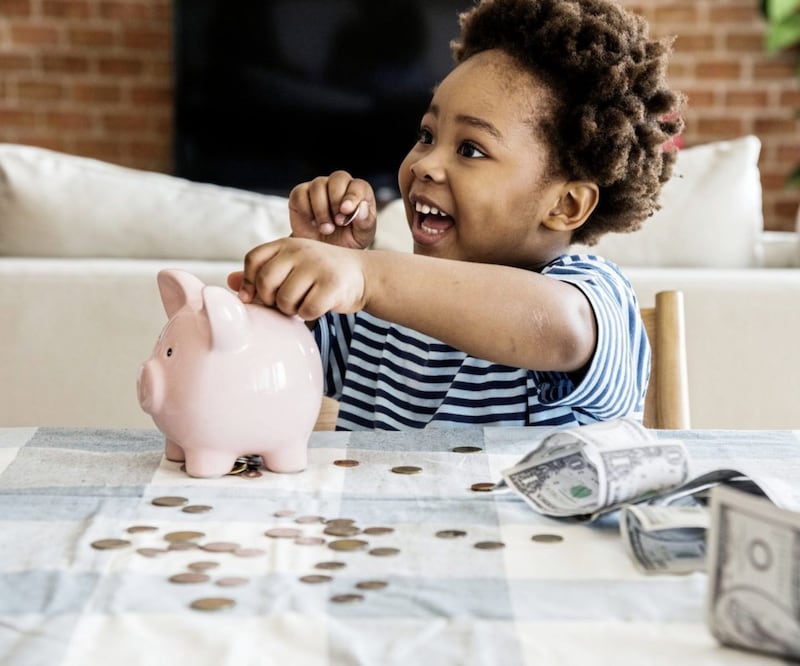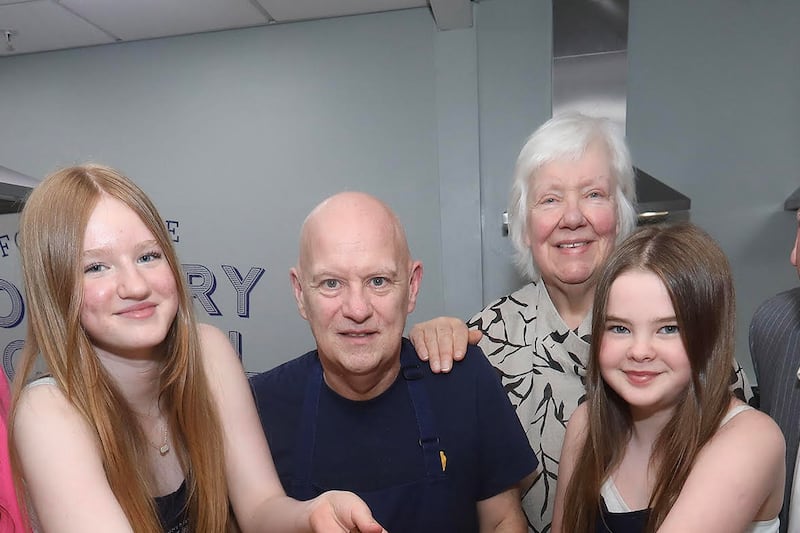THE children in your family may possibly still be a few years away from starting their working lives – but in many homes up and down the country, youngsters have already started learning about the world of earning.
New research by Santander shows how the 'pocket money economy' is a thriving part of family life, with more than three-quarters (77 per cent) of parents giving their children a regular allowance.
Many also pay their brood more on top, according to the poll, which quizzed parents as well as children aged five to 15. Nearly a third (32 per cent) pay their children to complete household chores, while 18 per cent reward good behaviour at school.
But handouts can also be reversed in the form of 'fines', with children having to pay their parents back for uncompleted chores or bad behaviour at school.
For parents, the pocket money economy is a great way to give their children an early taste of what it's like to earn, spend and save their own cash.
Ann Griffiths, senior policy manager at Money Advice Service (MAS), which offers free money tips, says a recent study it conducted found nine in 10 parents feel it's important to help their children learn about cash.
"When it comes to when is right to teach your children about money, we know from our research that younger is better," she says.
"Starting them early gives them experiences with money that will help them later in life. For example, our insight shows that the more parents talk to their children about money topics, like advertising, the better they are at making spending and saving choices.
"The good news is that you don't need to be an expert or great with money to start speaking to your children about it," Griffiths adds. "There are things every parent can do."

Here are the MAS's top tips on how parents can help their children learn about money...
1. Give them responsibility
Things like pocket money – or even just giving children responsibility for some money you already spend, for example on treats – will help them in later life when it comes to handling money in the real world. How much money they get isn't important; what matters is that they can practice with their own money on a regular basis.
2. It's never too young to start
The MAS's research found that money habits begin to develop before the age of seven, so starting early really is better. Why not get your child to check your bank balance the next time you go the cashpoint? It's also never too late to start, either. There are plenty of things you can do to help older children and teenagers learn about money too. You could talk to older children about saving for long-term goals like a car, or give them responsibility for phone credit.
3. Be confident
This is your opportunity to help your children develop positive, beneficial habits. Every parent can do little things to help their children, even if you aren't the best with money.
4. Subtly integrate money into your child's life
You don't have to have a formal discussion about finances to bring up the idea of good money management. Money is a very practical subject and children can be very hands-on learners. Find ways for your children to handle and use money whenever possible. In younger children, role-play can be used – for example 'playing shop' using pretend money.
When you go shopping for example, encourage your child to make a choice between two items so they understand they can't 'have it all', or explain to them that while two products are very similar, one is cheaper and it can be sensible to go for that one.
5. It's OK to make mistakes
Ultimately, it's how we all learn from our mistakes that counts, and that applies to money as well. It's far better for children to make mistakes with smaller consequences than face bigger money issues when they are older. Talk to them about the choices they've made and what they've learned, and how that might change choices they make in the future.
:: For more advice on teaching your children about money, search Moneyadviceservice.org.uk








